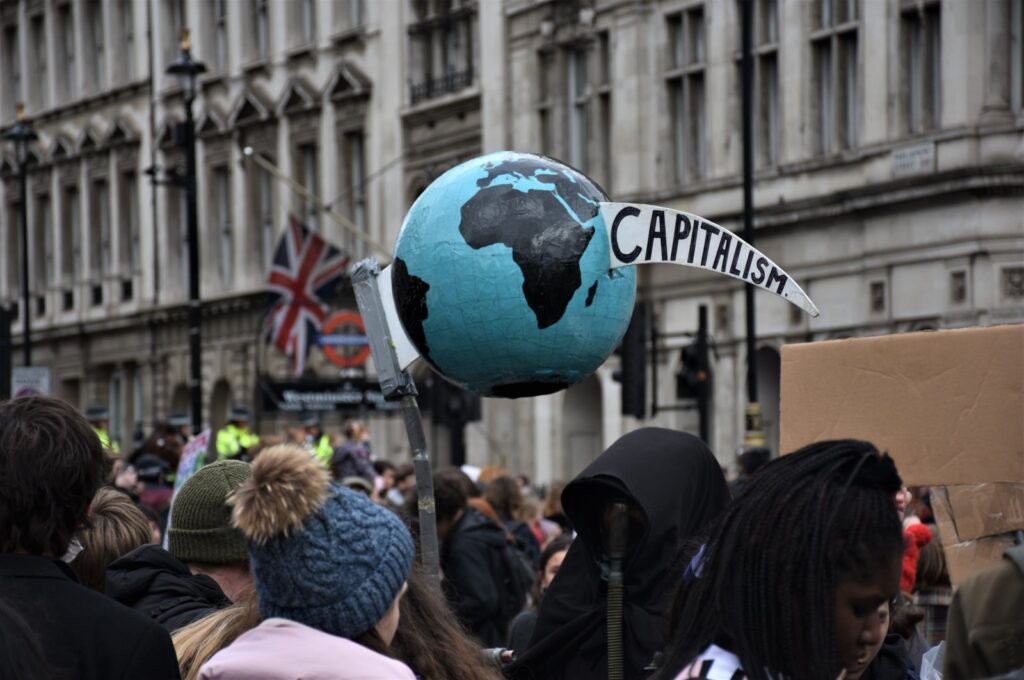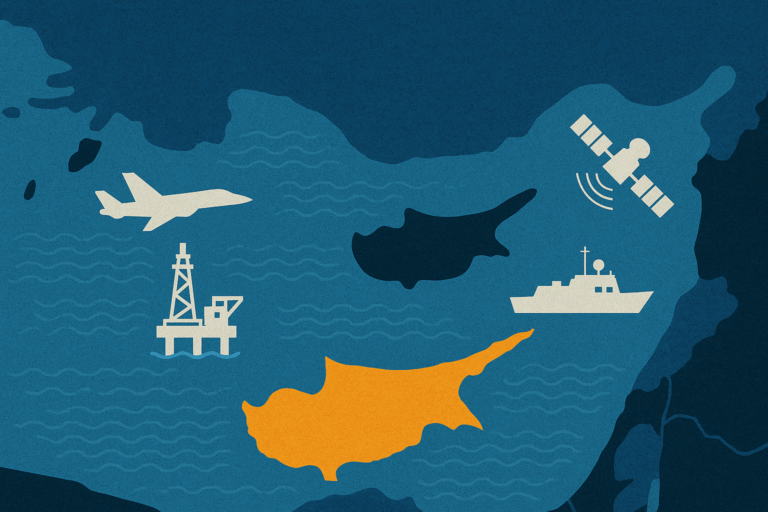At first glance, the title of this article may seem somewhat misleading. On the one hand, the word “imperialism” is often intuitively regarded as equal to colonialism, which comes second, and, on the other hand, capitalism already played a central role, especially during the times of classical European colonialism, also known as “high imperialism,” from 1880 onward, which is why the temporal sequence could be perceived as contradictory. However, these terms have different meanings and should therefore be strictly separated both semantically and didactically. After all, the world has always been imperialistic, only its impact has changed in the last 100 years from colonialism to “pure capitalism.”
This article is devoted to its recitals from a Eurocentric point of view and is rather intended to show in what way imperialism has survived until today and still determines daily life.
Even if scholars retrospectively distinguish between several phases and types of colonization, the general public today understands it primarily as the European drive for expansion in all parts of the globe between the 18th and 20th centuries. This development was favored by the newer technical possibilities caused by the Industrial Revolution and “Manchester Capitalism” in the long run, also by the military superiority of European countries.
However, it should be noted that initially, colonization was primarily an economic endeavor led by companies, such as the notorious British East India Company, in non-European regions of the world. This was aimed at facilitating extended and cost-effective trade of modern European products, as well as obtaining valuable foreign raw materials. Only with the later recognition by the crowns of their own civil jurisdiction and warfare authorization did these societies gain strength in authoritarian character. With the territories now opened up by force and their contractual cession to the country of origin, the emergence of such colonies is typically a familiar topic for the common reader in the contemporary world. In this context, most people think of the British, French and Spanish, followed by the Portuguese and, with a bit of luck, even Dutch and Belgian colonial powers, which had divided up large parts of the globe among themselves until the beginning of the last century.
In this context, the United States has also been perceived much more (rightly) as a colonial power, owing to its annexation of territories in the Pacific and the Caribbean over the course of two centuries. It has also been viewed as an imperial power for many decades, due to its decisive military and political involvement in global affairs, as well as its role as the pioneer of modern capitalism, particularly the dominance of the U.S. dollar. However, it is often overlooked that the U.S. itself was once a European colony, highlighting the complex historical dynamics at play.
Roots of colonialism
The origins of modern colonialism can be traced back to the Middle Ages when America was discovered, and the Venetians, along with the Genoese, established colonies in the Mediterranean to gain market advantages in trade by capturing important ports along or parallel to the Silk Road. However, the difference between this type of colonialism and later colonialism lies in the fact that in the former case, the states themselves were imperialistic.
Thus, in 1492, European expansionism really took off when Christopher Columbus, hoping to find India for trade considerations (after the Ottoman Empire had spread to the East and was demanding high tariffs on trade goods) across the Atlantic, discovered the American continent and paved way for the Iberian colonization of the “New World,” which the other Western European nations followed in the decades and centuries that followed. The driving force behind this, besides the primitive competition for prestige, was the import of valuable goods, whether these were exotic commodities or other natural resources, as well as the acquisition of new territories and areas of life. This is also known as the trans-Atlantic triangular trade, which included the enslavement of African peoples.
In today’s heated discussions about the colonial efforts of world powers, the ancient world does not find much consideration, which is quite justified due to the past time span. Nevertheless, it should be made clear (for the subject of this article) that even the Romans, Greeks and Alexander the Great already pursued colonial or rather imperial endeavors. The reason for this in antiquity, however, was not primarily based on economics, but much more on power and security concerns as well as idealistic considerations.
Hence, it is also clear that since the first civilizations of mankind (known to us on a large scale), imperial aspirations have been an ongoing calculation of interests that has not lost importance over thousands of years. Even if the motives such as idealism, power or economic interests (which, by the way, were present in all epochs, but always expressed themselves in different weighting) have experienced a change in the course of time and increasingly took on economically oriented or more capitalistic features, one facet has not changed in imperial ambitions: The striving for superiority over conquered territories, but also the other competing, European colonial powers (which is probably, as social researchers and psychologists would call it, due to the nature of the human being). This can already be recognized by the fact that only some centuries ago it was discussed in elitist and scientific circles whether the peoples of Africa and Asia were human beings at all.
Christian salvation
If one has justified the colonization in the Middle Ages with Christian salvation efforts, this changed at the latest after the French Revolution in such a way to a self-named educational order, with which they tried to “civilize” the people of the conquered areas regarded as semi-human. This course meant that the culture and languages of the colonial powers largely prevailed in the conquered territories. The effects are still noticeable today, as in this article, which is written in English, after this language, according to some sources, was the mother tongue of a quarter of the world’s population until decades ago and is therefore recognized today as the global lingua franca.
This derivation actually fully explains the difference between the three terms of the heading. So, imperialism is to be understood as the general expansion and the superior urge of states or persons in power therewith; while colonialism as its political doctrine refers in concrete terms to the appropriation of the other, mostly overseas territories, in which not only all wealth, sovereignty, as well as labor power of the subjugated peoples, are usurped and with that, a dependency relationship is created, but also the foreign culture and customs brought along are imposed in the new territories.
Against this background, it is not intended to address the discussions in scientific circles today that colonialism has undoubtedly been a crime, but for some countries to achieve modern living conditions it could also have been a blessing at the same time. However, it should be pointed out in this scope that colonialism can certainly be seen, albeit at a very high price, as progress for world history in that it brought globalization, henceforth easier trade, transcultural understanding and indirectly technical progress.
In contrast to colonialism, pure capitalism is merely an economic pursuit of profit. This is also a form of imperialism as a set of instruments for gaining superiority and establishing a web of dependency, but with the essential distinction that it does not impose itself culturally (the cultural imperialism that continues to be observable today through television and the media may be excluded here). Therefore, as the founder of monetarism, Milton Friedman, once suggested, it considers every human being at least equal – in theory. By this, its existence seems to be easily justifiable after its imperial shape is not perceived in the same obviousness, and in the modern age, the highly praised individualism even represents a creeping process more likely perceived as normality.
But capitalism also harbors a web of dependency that comes about through the granting of credit. On the micro level, this includes the credit-financed consumption frenzy that has fallen into disrepair today; on the macro level, the Marshall Plan and the International Monetary Fund (IMF) are prime examples of this. So, in the former case, the U.S. and until today, the IMF also interfered in the political affairs of a foreign country when granting credit. In another, a milder form, such dependence can also be seen in China’s One Belt, One Road (OBOR) initiative, another name for Belt and Road Initiative (BRI).
Superiority of capitalism
The superiority of capitalism is measured here in terms of wealth or prosperity, whether at the state or individual level, which is where the theory of (human) equality ends. In this way, based on the shape of capitalism, if one wants to take the whole thing to the extreme also in view of the fact that colonialism (even if it was capitalistically tinged) has, for better or worse, nevertheless created a certainly added value for humanity, one could ask what profit the fairly pure capitalism brings to the general public today, if it is only a matter of making a lot of money with interest and capital gains on the one hand, and on the other hand of pushing ahead with indebtedness and the accompanying self-attributed say in the lives of others?
Is it not the case that the Cold War, as the most obvious imperial revelation to date (though communism is not to be taken in defense here), produced nothing but rearmament, the threat as well as fear worldwide and led to a bipolar concentration of power, the aftermath of which Germany was allowed to experience until the 1990s and we are experiencing today in Ukraine? How can we ignore the fact that the environment continues to deteriorate due to the greed driven by modern capitalism? Certainly, capitalism also has positive side effects, such as significantly advancing the technologization of the world due to the market mechanism. But the question that must be asked here is whether such a development would not have been possible under a different economic regime and whether the advantages weigh so heavily as to erase the disadvantages of the capitalist essence.
Listening to the studies and findings of the prominent economist Thomas Piketty on the effects of capitalism on the individual in the 21st century, such an assumption is more likely to be denied. In his book “Capital in the Twenty-First Century,” the French economist states that capitalism today is causing a re-feudalization that is even worse than in the days of Jane Austen, a well-known English novelist who tried to reflect fatal contemporary social inequalities in her novels. The increase in inequality is, in fact, a prerequisite for the continued existence of this regime. In his work, Piketty explains that we have an enormously high concentration of wealth today than we have had for a long time. Since a concentration of wealth inevitably leads to a concentration of power, he believes this in turn threatens the survival of democracy. Considering the European Central Bank’s (ECB) income ranges and statistics on wealth distribution in Europe, one can only agree with these theses.
These issues are also regularly the subject of indirect and sometimes direct election campaigns in Europe, which is why right-wing parties are increasingly gaining ground here, having at least opposed such a development. Considering all circumstances, is it not then the case that capitalism today rather and exclusively causes a regression, whereas colonialism could still be perceived as a romantic concomitant of imperial aspirations?
This question and the search for a way out will probably be one of the most important issues that we and the following generations will have to deal with.




